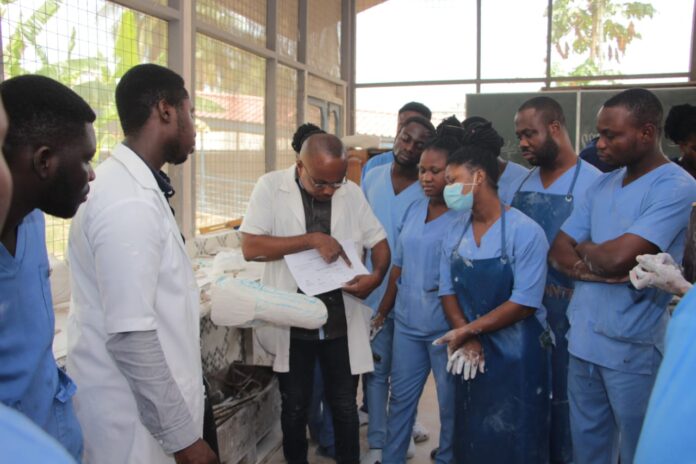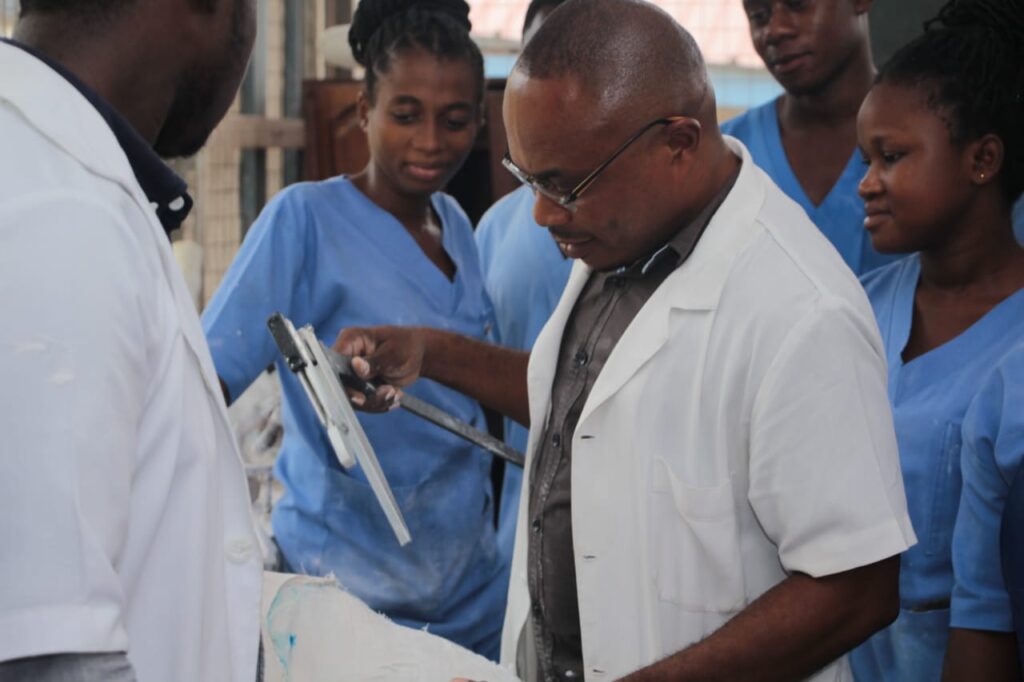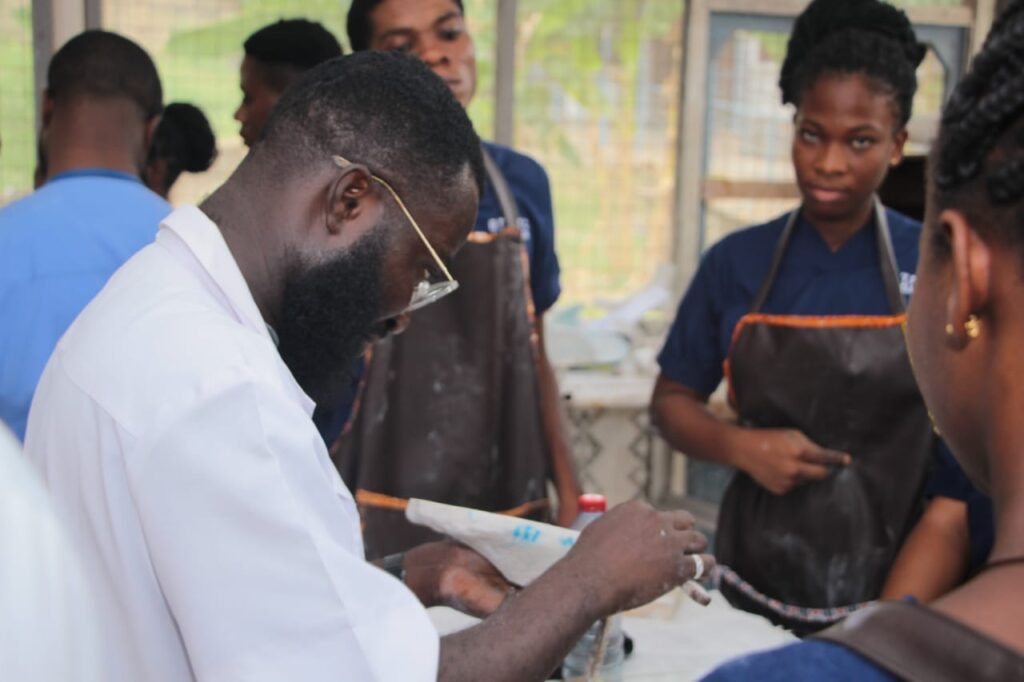
First Prosthetics and Orthotics Training College in Ghana is dire need of support of materials, tools and other machineries in order for the institution to operate effectively.
Speaking in an interview with Starr News, the Head of P&O Department of the College Nana Kwaku Agyei expressed worry over the development at the institution.
“We are facing challenges with our materials, tools and machineries. The materials that we need the most to enhance our training activities is POP bandage and PO powder. Those are the basic material we normally need to enhance our teaching activities.
“Because the profession is specialized we need a lot of machineries to be able to train the students. These machines are not locally available so it have to be imported for us to get them but they are very expensive,” Mr. Agyei stated.
President of the Students Representative Council, SRC, in Brother Tarcisius Prosthetics and Orthotics Training College, Siaw Edward Ampadu said apart from training logistics constraints, accommodation for students is also a challenge.
He appealed to government and corporate bodies to come to the aide of the college to increase enrollment from current 50 students population.

Principal of the College Henry Larbi told Starr News, due to limited facilities inhibiting admission of more students, the college is unable to generate revenue internally to support its activities.
He said the college needs more infrastructure and training logistics to enable its increase enrollment to churn out specialists to meet growing demand for assistive devices.
Prostheses (artificial legs and hands) and orthoses (braces and splints) enable people with physical impairments or functional limitations to live healthy, productive, independent, dignified lives, facilitate their participation in education, the labour market and social life.
The lack of P&O for people who need them often results in exclusion and abject poverty, which increases the burden of morbidity and disability.

Brother Tarcisius Prosthetics and Orthotics Training College (BTPOTC) established in 2013 in Nsawam -Adoagyiri in Eastern Region of Ghana in West Africa is first prosthetics and orthotics training institution in the country with ultimate aim to address huge gab in provision of artificial legs, hands, braces and splints and associated expert services for persons with mobility challenges.
World Health Organization estimates that, only 1 in 10 people in need has access to assistive products, including prostheses and orthoses because of their high cost and lack of awareness, unavailability, inadequate trained personnel, policy and financing.
According to Ghana’s 2021 Population and Housing Census, population of persons with Disabilities has increased and now constitutes eight percent of population which represents 2,098,138 individuals some of whom amputated and needs prothesis and orthostasis.
The Convention on the Rights of Persons with Disabilities (CRPD) states that Member countries are responsible for taking effective measures to ensure personal mobility for the greatest possible independence of people with disabilities.
The convention also enjoins member countries including Ghana to have corresponding responsibility to promote and ensure the availability of and access to affordable, high-quality assistive products, including prostheses and orthoses.
Brother Tarcisius Prosthetics and Orthotics Training College (BTPOTC) affiliated to KNUST and a member of Allied Health Council was therefore charged with responsibility to train and equip students with skills and knowledge in prosthetics and orthotics (P&O) to fill the gap in the Ghanaian health care system with direct clinical services for people in need of P&O devices.
The three year diploma awarding college ,an offshoot of P&O clinic (alias OTC) established in 1961 by Brother Tarcisius and Sister Elizabeth a Dutch and American missionaries respectively is however facing lots of challenges of inadequate tools and machineries as well as materials for practical’s.
The inadequate infrastructure is also affecting capacity to enroll more students to be trained to meet rising needs for affordable prosthetics and orthotics devices and services in line with Sustainable Development Goals and UN conventions on disability.
Source: Ghana/Starrfm.com.gh/103.5FM/Kojo Ansah



